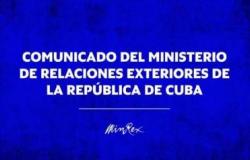In the midst of the judicial investigation of Mr. Tobacco, Pablo Otero, senators included changes in the legislation on the sector.
The tobacco tax reform It was one of the least discussed articles within the parliamentary debate of the Bases law in the Senate and it was not even included in the opinion. Suddenly sanctioned in Deputieshad the same luck in the upper house and achieved his majority approvalwith a significant number of abstentions.
The content you want to access is exclusive to subscribers.
to subscribe I am already subscribed
The initiative had 33 votes in favor (impulse from UCR and PRO), 10 against (distributed into different blocks) and 27 abstentions (preponderantly Peronist). If it is ratified in the Chamber of Deputies, the project will become law.
What does the tobacco tax chapter say that complicates Pablo Otero?
Two tobacco who were benefited by a precautionary measure by which they avoided paying taxes suffered a judicial setback in the face of a claim from the AFIP. This is the same competitive advantage that maintains Tabacalera Sarandí, by Pablo Otero, for which by not complying with the obligation of the internal tax your cigarettes are sold to the public at a cheaper pricewhich allowed it to gain a greater market share.
Among the modifications that appear in the chapter of tobacco taxes of the Bases law, They aim to equalize taxes for all companies in the tobacco sector.
Pablo Otero.jpg
Pablo Otero, known as Mr. Tobacco.
This measure seeks to correct existing inequalities and guarantee equitable competition. The original project, presented in January and later withdrawn in February, was reincorporated after the approval of the Bases Law and prior to the treatment of the fiscal chapter.
In detail, the changes proposed by the Tobacco tax bases law are:
- This project approved and sent to the Senate focuses on the internal taxes on tobacco, proposing to raise the tax on 70% to 73%, which would have a direct impact on the price of a pack of cigarettes.
- In addition, a specific rate is established for electronic cigarettes. Although these devices have been prohibited by provision of the National Administration of Drugs, Food and Medical Technology since 2011, which sparked debate among legislators.
- The sale of cigarettes is taxed by two combined internal taxes: a 70% rate on the price of the bundle.
- This is a minimum amount that the AFIP updates with inflation and which today is $793. The highest amount is paid. The point is to increase the price of cigarettes to discourage their consumption.
- The vote on changes to the tobacco tax was tight, with 82 votes in favor, 77 against and 69 abstentions. Legislators from Peronism and the left mainly abstained, arguing that it was a dispute between big businessmen.
From the AFIP They explained: “The Internal tax on cigarettes is levied at a rate of 70% its sale; The price on which the rate is applied cannot be less than a fixed amount that is updated for inflation four times per year. The fixed tax is called the minimum tax. “Some companies, through judicial precautionary measures, have avoided paying the tax on the minimum amount.”







